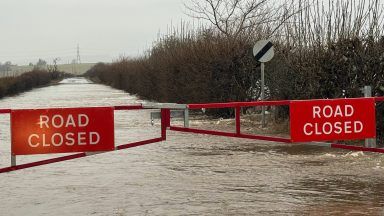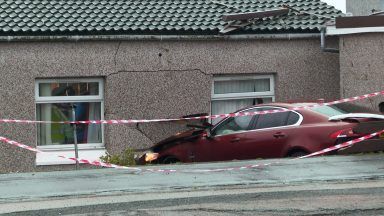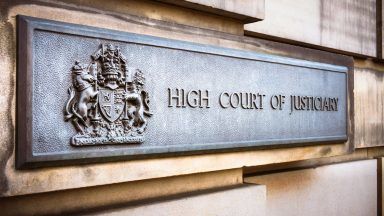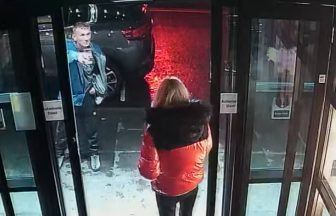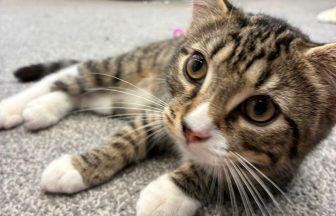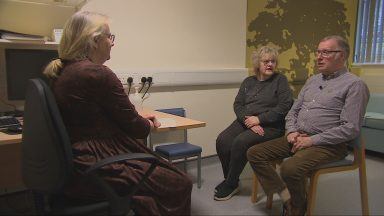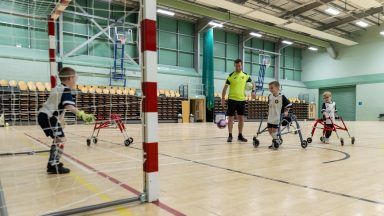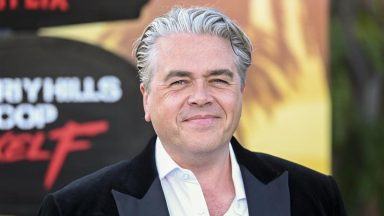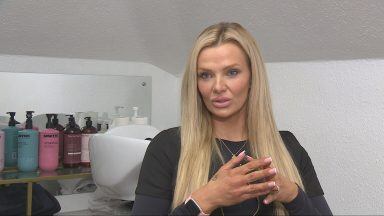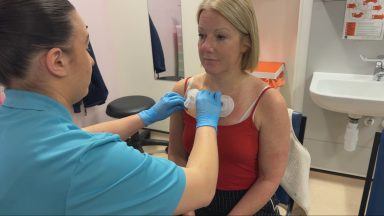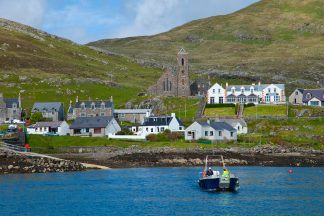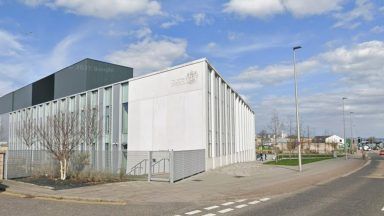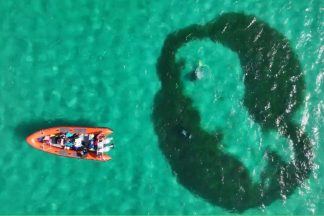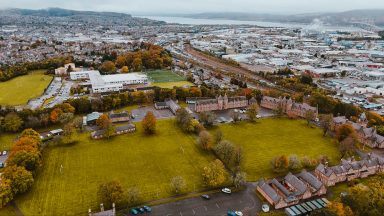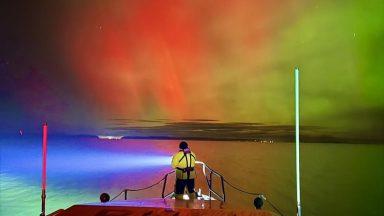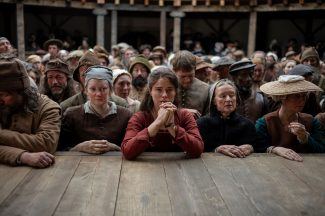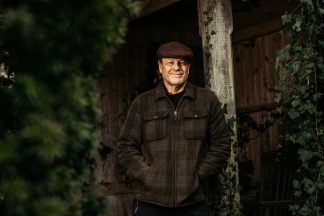People living in one of Scotland’s remotest locations have had their portraits taken by the Prince and Princess of Wales’ official photographer.
Residents of the Knoydart Peninsula, located in the Lochaber area of the Highlands, took part in a project aimed at highlighting the importance of community spirit.
It is only possible to reach Knoydart by an 18-mile (29km) hike over Munros or a seven-mile (11km) journey by boat. The area does not have a 4G mobile network connection, making it one of the most disconnected parts of the UK.
New research conducted by phone company OnePlus revealed that 82% of residents leave their doors unlocked and 100% know their next-door neighbour by name.
Bucking the national trend – 82% speak to their neighbour at least once a week.
The community spirit on Knoydart is so strong that people have started to leave cities and move there in search of a more tranquil way of life.
Matt Porteus, official photographer of Prince William and his family, used a drone to take some of the resident’s portraits.
Here are their stories:
Finley Greig
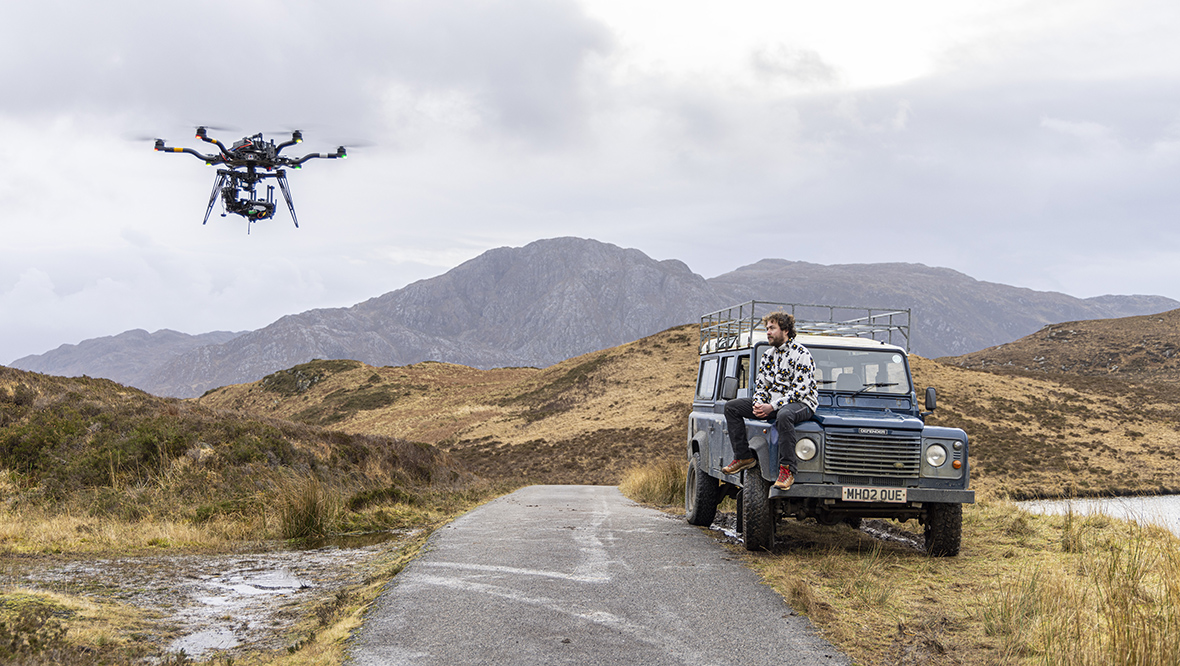 OnePlus
OnePlusFinlay Greig’s role includes managing conservation projects, such as the Knoydart campsite, and offering tours of the village and surrounding land to tourists during peak season (from March to September).
He moved to Knoydart in 2021 following a summer visit after falling in love with the amazing landscape and has a deep knowledge of the history of the area in his role as Ranger.
Jayne Eddie
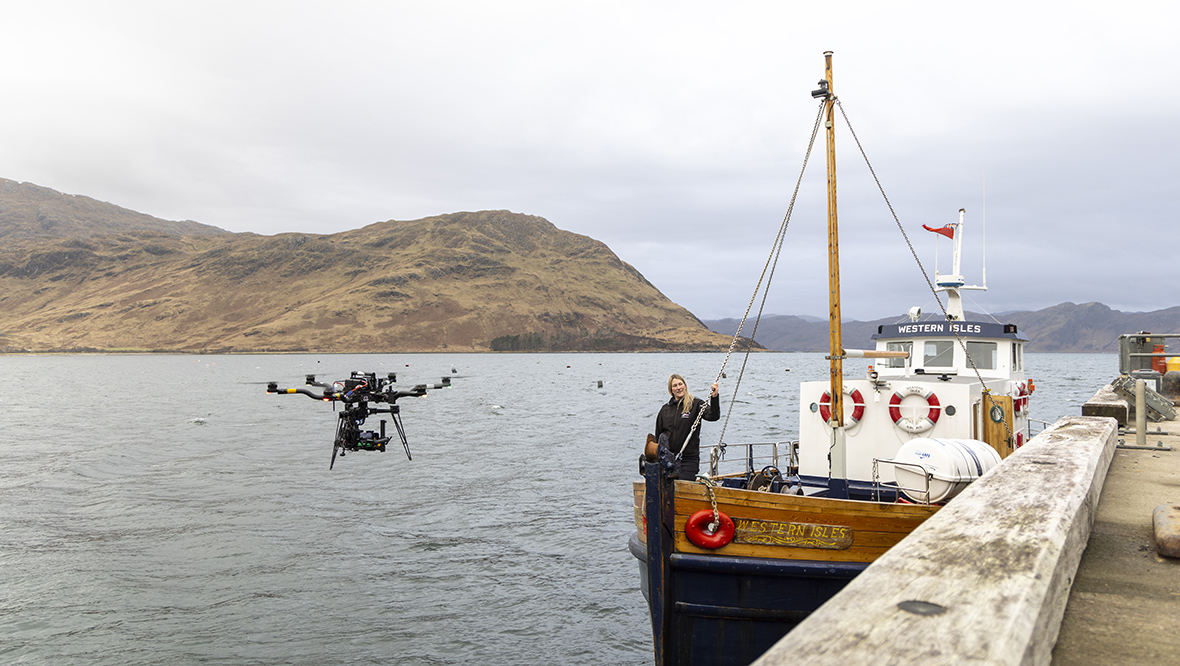 OnePlus
OnePlusJayne’s role as skipper on the Western Isle Cruises is to sail Knoydart’s residents back and forth from the mainland, as well as their shopping, freight, goods and mail
Having worked her way from the ticket office to carrying vital supplies across the sea to Knoydart’s residents – Jayne’s role is vital in the maintenance of the area.
Rebecca Rutherford
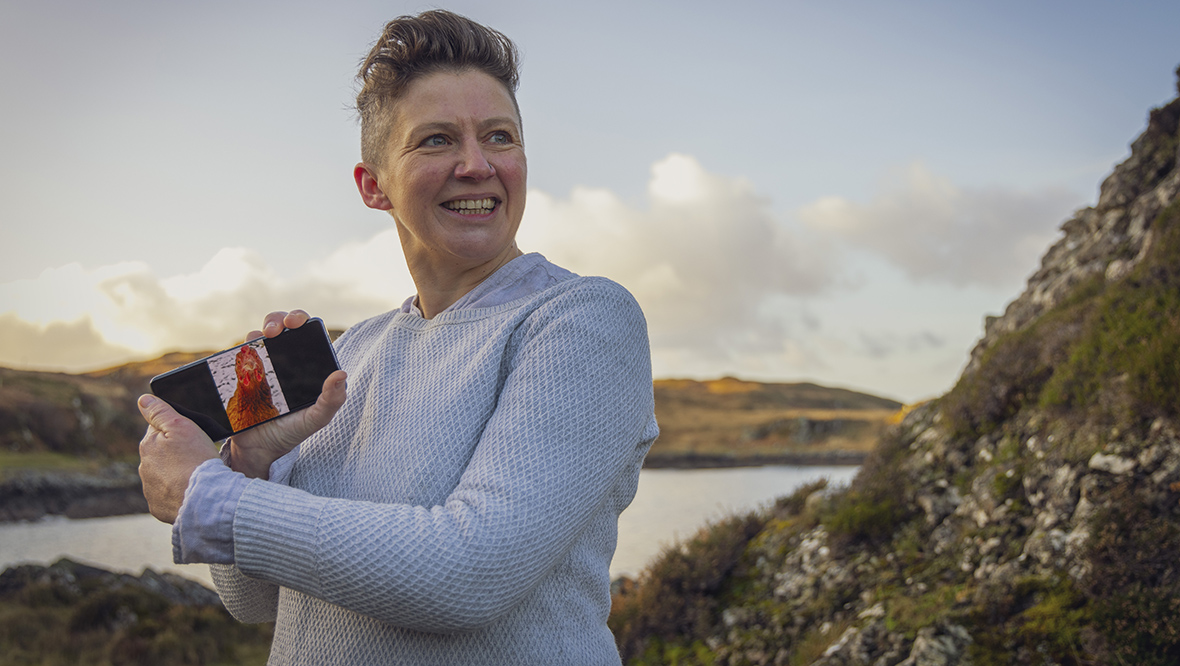 OnePlus
OnePlusThe Doune Stone Lodges and Dining Room are owned and run by Rebecca Rutherford and Andrew Brodie, ably assisted by Rebecca’s 12-year-old son, Bob.
There is also Annie the dog, Alan the cat, 22 chickens, four pigs and a garden that’s regularly full of red deer stags.
They grow as much as they can and have plans to cultivate the field behind their house to grow even more.
Furthermore, they also source all their produce as locally as possibly to help the circular economy, which it makes it simpler to run what is perhaps the most logistically challenging hospitality business in Scotland.
Follow STV News on WhatsApp
Scan the QR code on your mobile device for all the latest news from around the country


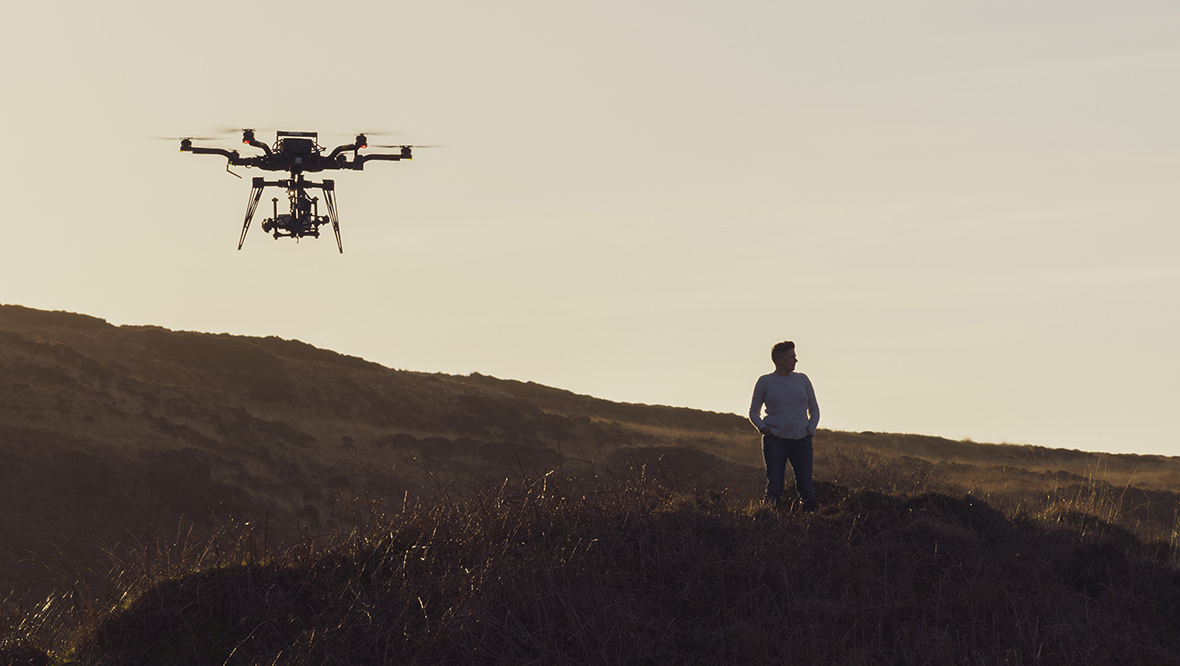 OnePlus
OnePlus

